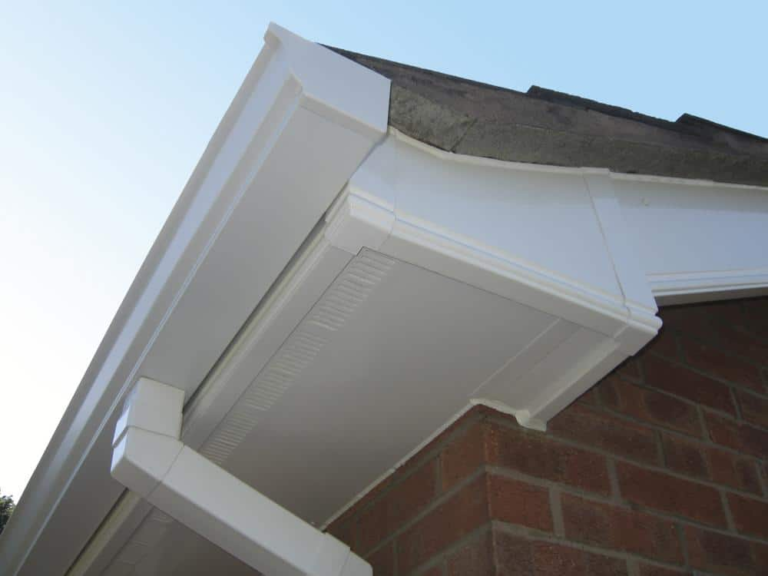This company has no active jobs
0 Review
Rate This Company ( No reviews yet )
About Us
The 10 Scariest Things About Fascia And Soffit Maintenance
Fascia and Soffit Maintenance: A Comprehensive Guide
When it comes to keeping a house, the importance of exterior aspects like fascia and soffit can not be overemphasized. These elements not just contribute to the visual appeal of a property but also serve important functions in regards to ventilation, moisture control, and structural integrity. This article dives into fascia and soffit maintenance, covering their meanings, functions, common problems, and effective maintenance practices to ensure their durability and efficiency.

Understanding Fascia and Soffit
Fascia is the vertical board that runs along the edge of the roofing system, generally where the roofing system eaves extend. It holds the gutter system in place and is often painted to match or emphasize the exterior of the home.

Soffit, on the other hand, is the horizontal board that connects the fascia to the home’s exterior wall. Soffits are usually vented to permit air flow into the attic area, promoting ventilation and avoiding heat and wetness buildup.
Functions of Fascia and Soffit
The main functions of fascia and soffit include:
- Protection: They shield the attic and roofing structure from the components, consisting of rain, snow, and bugs.
- Ventilation: The vented soffit allows for appropriate air flow, which helps to prevent mold and condensation in the attic.
- Visual Appeal: Both fascia and soffit add to the total curb appeal of a home, improving its visual interest.
Typical Issues with Fascia and Soffit
Like any part of a home, fascia and soffit can face a range of problems that might jeopardize their efficiency. Typical issues consist of:
- Rotting: Moisture and humidity can lead to wood rot in both fascia and soffit, weakening their structural stability.
- Pest Infestation: Insects, like bees, wasps, and termites, may nest in these locations if left unattended.
- Peeling Paint: As weather condition and time take their toll, paint can start to peel, interfering with the home’s look and enabling more wetness seepage.
- Gutter Issues: Poorly set up or kept seamless gutters can overflow, causing water damage and soil disintegration around fascia and soffit.
- Vent Blockages: Dust, particles, and nesting products can impede airflow from soffit vents, resulting in incorrect ventilation in the attic.
Maintenance Tips for Fascia and Soffit
Regular maintenance is vital for guaranteeing fascia and soffit stay functional and appealing. Here are some necessary maintenance steps:
1. Routine Inspections
Conduct regular examinations, particularly after severe weather, to examine for indications of damage or wear. Try to find:
- Cracks or divides in the fascia
- Indications of rot or mold
- Loose or sagging sections
- Insect activity
2. Clean Gutters and Downspouts
Clogged up seamless gutters can lead to water pooling, which increases the risk of decomposing fascia and soffit. Guarantee rain gutters and downspouts are devoid of debris and working efficiently:
- Remove leaves, twigs, and dirt
- Flush with water to examine drainage
- Clear any obstructions
3. Painting and Finishing
If fascia and soffit are wood, painting or staining them can enhance their resistance to moisture and insects:
- Choose long lasting, weather-resistant paint or stain
- Repaint every few years as required
- Repair any peeling before repainting to ensure adhesion
4. Ensure Proper Ventilation
To prevent wetness accumulation in the attic, guarantee that soffit vents remain clear:
- Remove any obstructions triggered by particles or pests
- Clear exterior soffit holes to permit proper airflow
5. Change Damaged Materials
If any fascia or soffit boards reveal substantial damage or rot, replace them immediately to prevent additional issues:
- Use rot-resistant materials like PVC or aluminum
- Seek advice from a professional for extensive damage
6. Professional Inspection and Repairs
For any significant issues, such as pest infestations or severe structural issues, enlist a professional for a thorough evaluation and repairs:
- Schedule an annual professional assessment
- Address issues immediately to avoid expensive repairs later on
Table: Maintenance Checklist for Fascia and Soffit
| Maintenance Task | Frequency | Notes |
|---|---|---|
| Visual Inspection | Monthly | Try to find damage, rot, and pest activity |
| Tidy Gutters | Bi-annually | Guarantee reliable water drain |
| Paint/Stain | Every 3-5 years | Use weather-resistant materials |
| Clear Soffit Vents | Yearly | Avoid air flow blockages |
| Change Damaged Sections | As needed | Use rot-resistant materials |
| Professional Inspection | Each year | Seek advice from an expert for major problems |
FAQs About Fascia and Soffit Maintenance
Q: How typically must I examine my fascia and soffit?A: It is suggested
to examine these functions monthly, especially after extreme weather condition conditions. Q: Can I paint fascia and soffit myself?A: Yes, many house owners select to do this themselves. Nevertheless, ensure you follow appropriate precaution and pick weather-resistant paint for enduring outcomes. Q: What should I do if I find rot on my fascia?A: If the damage is minimal, you may have the ability to
repair it with wood filler or epoxy. For comprehensive damage, changing the impacted area is suggested. Q: How does bad ventilation impact my attic?A: Poor ventilation can lead to moisture accumulation, which can trigger mold development, structural damage,and increased energy costs due to ineffective cooling and heating. Q: Are there any materials that are better suited for fascia and soffit?A: Yes, vinyl, aluminum, and dealt with wood are popular choices due to their durability and resistance to
rot and bugs. Keeping fascia and soffit is crucial for preserving the stability, safety, and aesthetic appeal of a home. Routine inspections, cleansing, painting, making sure proper ventilation,
and professional interventions when necessary can significantly extend the life of these essential elements. Property owners ought to stay proactive in their maintenance efforts to avoid costly repairs and ensure their homes stay protected from the components.


